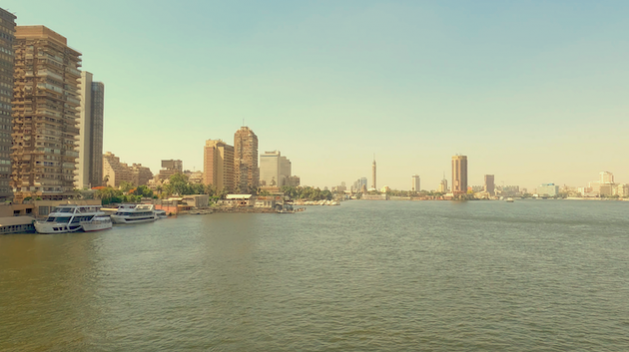
Biodiversity, Climate Action, Climate Change, Conferences, Environment, Featured, Global, Headlines, TerraViva United Nations

Climate change is predicted to put pressure on the Nile Valley and Delta, where about 95% of Egypt’s population resides. Credit: Hisham Allam/IPS
– The countdown to the UN Climate Summit COP27, which will take place in Sharm el-Sheikh, Egypt, from November 6 to November 18, has begun.
This summit has drawn the attention of world leaders, high-ranking United Nations officials, and thousands of environmental activists worldwide.
The COP27 summit is an annual gathering of 197 countries to discuss climate change and what each country is doing to limit the impact of human activity on the climate.
About 90 heads of state have confirmed their attendance at the COP27 in Sharm El-Sheikh, according to the special representative of the Egyptian presidency.
Amr Abdel-Aziz, Director of Mitigation at Egypt’s Ministry of Environment, noted that the central theme for COP27 is implementation.
“We hope to demonstrate what that looks like in terms of mitigation and adaptation. If the summit can address the topic of implementation in all of its discussions, it will be a sign of its success,” Abdel-Aziz said.
The primary objective of COP27 is to achieve positive results in terms of emissions reduction; on the agenda is also a discussion of financing losses and damage.
“We also intend to advance the agenda to double climate adaptation financing by 2025 and reach an agreement on the unfulfilled $100 billion financial pledge from developed countries,” Abdel-Aziz told IPS.
The overarching goal is to strike a balance between all parties’ interests. The mitigation program, for example, is primarily driven by developed countries and small island developing states, which are currently experiencing severe climate change impacts.
On the other hand, emerging markets are principally accountable for adjustments, losses, and damages.
“Our goal is to achieve a balanced result that meets all of these goals and objectives,” he continued
“We wanted to cover as much of Egypt’s total emissions as possible,” Abdel-Aziz explains, “So we focused on three sectors: energy, oil and gas, and transportation. We also chose the industries that are most likely to reduce emissions.”
Abdel-Aziz says he is optimistic about meeting the goals, especially in the transport sector, which could even exceed the goals as there has been significant progress including in the area of “transportation electrification and other forms of sustainable mobility.”
The summit’s top priorities are to achieve the Paris Agreement’s goals and progress in the fight against climate change. According to scientific research, limiting global warming to 1.5°C by 2030 requires cutting emissions in half.
“Climate finance must be available for this to occur,” COY 17 Programme Leader Hossam Imam told IPS.
COY17 is an annual event organized by YOUNGO, the Official Youth Constituency of the United Nations Framework Convention on Climate Change (UNFCCC). This year’s event will take place on the sidelines of the 27th Party Summit in Sharm El-Sheikh, Egypt (COP27).
Imam will collaborate with 1,500 young people from 140 countries to draft the youth statement, which will be delivered to the presidency of the Climate Summit and discussed by high-ranking officials.
“The impact of climate change on indigenous peoples and coastal city dwellers who face flooding is one of the most pressing issues to be addressed in COY 17,” Imam said.
Environmental activist Ahmed Fathy told IPS that the most significant obstacle to developing countries achieving their climate goals is a “lack of adequate and adequate financing from developed countries. And, despite years of neglect, adaptation financing remains a top priority for developing countries. Without it, developing countries cannot combat and mitigate the effects of climate change.”
The Nile Valley and Delta, where about 95% of Egypt’s population resides, make up only 4% of the country’s natural area. Climate change is predicted to put pressure on these areas, particularly the Nile, and the region could experience more frequent droughts.
“Egypt is also one of the few nations that actually struggle with water scarcity,” Fathy added.
“Since the world faces several economic issues in addition to the energy crisis, we expect that the conference will produce workable proposals,” said Fathy, the founder of the ‘Youth Love Egypt Association,’ involved in organizing the COY17 conference and the promotion of the COP27. “We expect the summit to produce a workable charter and to be COP for actions rather than COP for pledges.”
IPS UN Bureau Report
